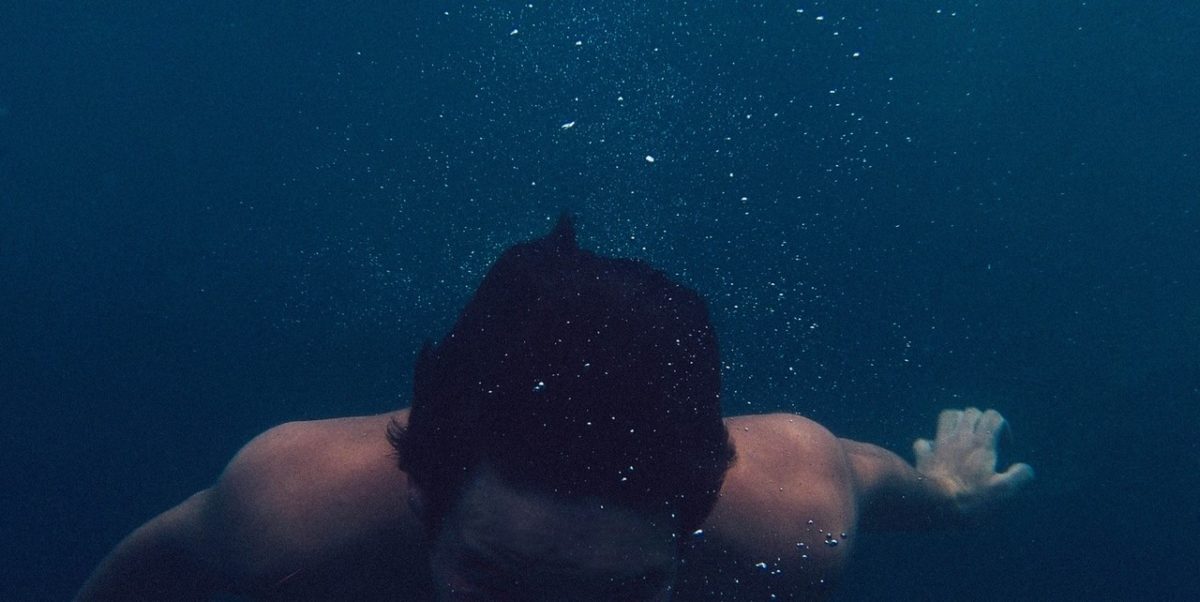“Try again. Fail again. Fail better.” – Samuel Beckett.
When I was 27 I almost drowned.
I was caught in a rip current at an unpatrolled beach on the South Atlantic coast of Brazil and I was not a strong swimmer. I had arrived at the beach with a friend only 5 minutes earlier.
When I realised what was happening, I did what almost all drowning victims do.
I panicked.
I swam as hard as I could towards the beach, ignoring everything I had been told about water safety growing up. I thought that if I could just swim the short distance to where I could put my feet down, I would be able to walk out. My friend was standing only a few metres away, barely making progress to safety himself.
Two things about the experience are burned into my memory.
The first is the feeling of helpless panic. I couldn’t save myself and there was nobody to help me. I was on my own.
The second was the look on my friend’s face after I said the words “I can’t get back” when I realised I was in serious trouble. I will never forget it. There was nothing he could do and his expression said it all. He was scarcely able to help himself. I don’t hold any bad feelings for this. I got myself into trouble. He did the right thing.
I grew tired. All my energy went into keeping my head above water. Waves seemed to come out of nowhere catching me just as I was trying to draw breath. I was coughing and spluttering because of all the water I had swallowed. Just threading water was exhausting me. I had no options. The situation was hopeless.
Suddenly, and just as quickly as I had got into trouble, the current swirled sideways pushing me up onto a sandbar where I could stand. A few seconds later, the water was waist high and I was stumbling back to dry land. The whole experience probably lasted less than 10 minutes.
Luck saved my life that day.
After this experience, I wanted to learn how to swim properly. I was determined to make the change so I could act to save myself. I would not be helpless. I would not leave it to luck.
I practiced in swimming pools. I watched ‘how to’ videos. I read articles. I asked friends for advice and tips. I tried to teach myself at patrolled beaches when it was safe. But no matter how hard I tried, I failed, over and over again. I just couldn’t get the hang of it. It was such a huge exhausting effort every time I tried, and I wasn’t improving at all.
I concluded that it just wasn’t for me. Maybe I just wasn’t a swimmer. I mean, not everyone becomes a good swimmer and there is no shame in that.
And then, in 2011, 5 years after my near drowning, I made a new years resolution to give it another go. I paid for lessons and it made all the difference.
The lessons were short and easygoing consisting of 4 simple instructions.
- Relax – Feel the water as you move through it. Don’t fight it.
- Eyes down – Keep both eyes facing directly downwards. This helps keep the right body position.
- High elbow – Having the elbow as the highest part of your body out of the water during the stroke makes you much more energy efficient.
- Head to shoulder when breathing. This keeps you streamlined.
The real learning for me was not these 4 rules, it was rebooting my mindset. I had created barriers for myself by overcomplicating things, imagining multiple issues I thought I needed to fix. Consequently, I was putting all my energy into the wrong areas and making no progress.
Getting lessons forced me to stop focusing on what I thought I was doing wrong and instead concentrate on getting the basics right. Once I did this everything became a lot easier.
Getting lessons gave me the advice I needed not the advice I wanted.
Fast-forward 3 years. I was regularly competing in 1-2km ocean swims most weekends and patrolling the beach as a lifesaver in Australia. Not only have I changed to help myself, I am qualified to go out and save other people.
Overcoming something I thought was beyond me totally changed my mindset on how to tackle problems. It is no overstatement to say overcoming this has changed my life.
Problems are not problems anymore. They are challenges, all of which can be overcome or navigated around by breaking them down into manageable steps, starting with informing myself and getting advice or lessons from someone willing to help.
I apply this new mindset to all situations of my life.
If you want to make a change in your life, I have 3 pieces of advice.
Number 1: Accept failure as a stepping stone to success. Failure is not bad. The most valuable experiences in life come from failures.
Number 2: Don’t give up. You will not succeed in your first attempt. Persistence is crucial.
Number 3: Don’t be afraid to get help, even if that means paying for it. It can make all the difference.
Change is not only good. It can be necessary for survival.






Great story. Currently reading Napolean Hill ‘Think and Grow Rich’. He tells this story called ‘three feet from gold’ which is essentially the same as your first point; that success can often be just around the corner from failure. Interesting concept.
Thanks Ian, I’ll check that out.
I admire your tenacity. Great story John – thanks so much for sharing!